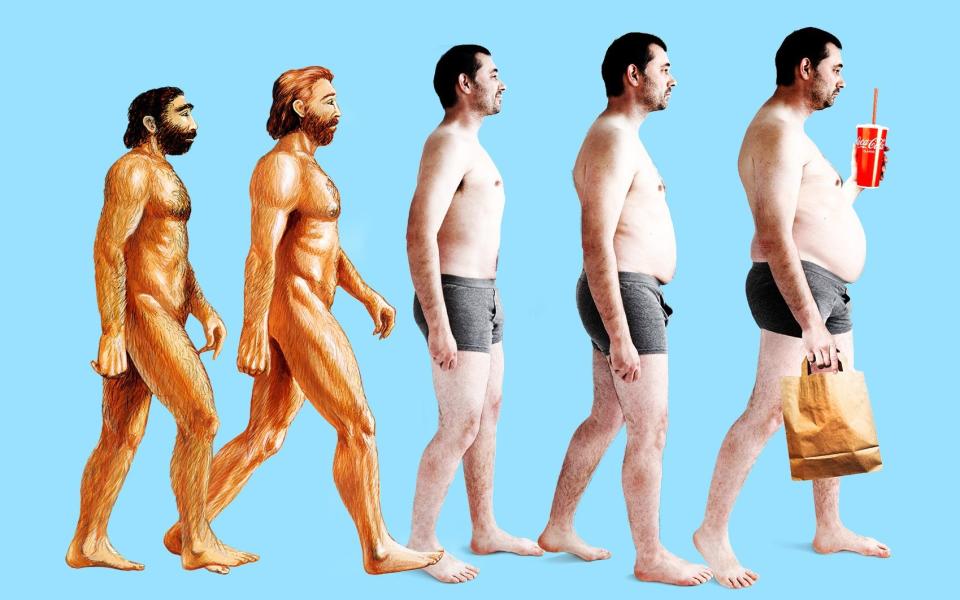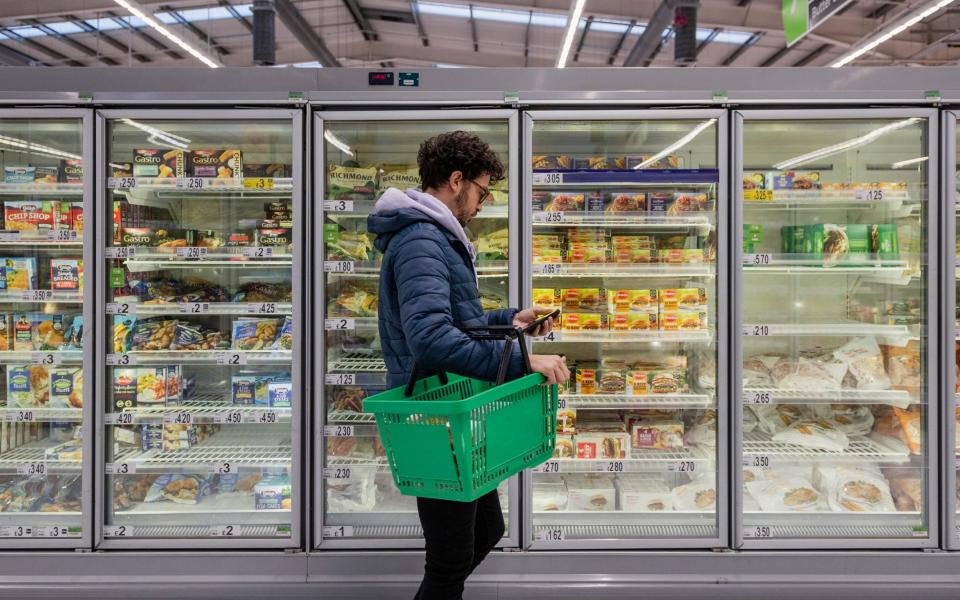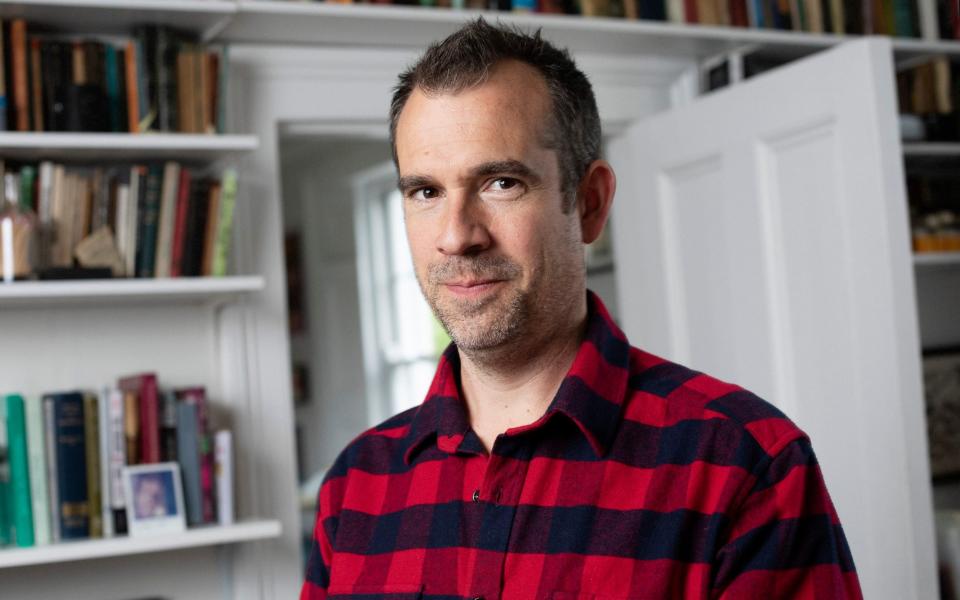How obesity evolved from a lack of willpower into a disease

Walk into your local convenience store and take a good look at the shelves. Are you looking at food? Or does the brightly coloured packaging largely contain something engineered to resemble food, but with a list of unrecognisable ingredients as long as your arm? The chances are you are mainly looking at what is termed ultra processed food (UPF), and which experts believe is responsible for a grave public health crisis on a par with smoking.
Welcome to the obesogenic environment in which we all now live. Just as parking an ice cream van outside a school every day will lead inexorably to more children eating more ice cream on school days, filling our shops and food outlets with the kinds of products that make it easy to make bad choices and hard to make the right ones leads to more obesity.
At least, that is one explanation for why, as a society, we have become so overweight. In the UK, an estimated 25 per cent of adults are living with obesity, according to the NHS. By 2030, this figure is expected to rise to 35 per cent in England. As the health service points out, it is “a complex health issue with many causes.”
The NHS is yet to categorise obesity as a disease. But a growing number of health experts and organisations believe it should be viewed as such.
The World Health Organisation, European Parliament and American Medical Association (AMA) already use the term “disease” to describe what used to be regarded as the failure of individual willpower.
Time and again we were told that if only we ate a healthy, balanced diet and took regular exercise, we could more or less avoid becoming fat, or lose any excess weight we had gained. This remains the official advice in the UK. And of course, for many people, it remains true – to some extent. But as the NHS acknowledges, the obesity problem has grown because “the environment we live in makes it difficult for many people to eat healthily and do enough physical activity.”
It is here – and also in our increased understanding of the part genetics plays – that the line between personal responsibility and an affliction beyond our control becomes blurred.
It has been a decade since the AMA voted to recognise obesity as a disease, with a number of other medical societies supporting this position. We have been slower in the UK to reach this conclusion; but in 2019, the Royal College of Physicians adopted the same stance. Their reasoning? That this was the only way to ensure funding for effective treatment options that could halt the spread of obesity across society and control its health and socioeconomic costs.

“I think the scientific community is well aligned with the view [that obesity is a disease],” says Dr Simon Cork, senior lecturer in physiology at Anglia Ruskin University. “We’ve known…for a long time that body weight isn’t due to personal choice but a combination of genetics, physiology and the environment.
“I often think of body weight as like blood pressure. If your blood pressure goes too high, we use medication to artificially bring it down. Body weight is regulated in very much the same way. It’s programmed around what we call a set point. So for the vast majority of people, whether they are underweight, overweight or obese, their body weight is stable…Your body tries to protect what it thinks is your normal body weight.”
You may succeed in shedding the pounds temporarily. Keeping them off is far harder. The reasons for this, as Dr Cork explains, lie in the interplay between genetics and the environment.
There are hundreds of gene variants associated in some way with body weight so many people have a genetic vulnerability to weight gain.
In a world where energy-dense foods that are rich in refined carbohydrates, saturated fats and salt, and low in dietary fibre are widely available to the point of being impossible to avoid, the environment makes it impossible for many of these people to live at a so-called ‘healthy weight’.
“I like to count the number of opportunities to buy a can of Coke from when I arrive at an airport to when I board a plane,” says Dr Chris van Tulleken, author of Ultra-Processed People, an investigation into the science and economics of ultra-processed foods. “There are typically dozens of opportunities. These foods are everywhere in the way cigarettes were in the 1970s. And the evidence that for some people they’re addictive is very strong.”

Most of us already know that cola does not form part of a healthy diet. Fewer people may be aware how many of our daily comestibles fall into the category of UPF: from supermarket sliced bread, breakfast cereals and frozen pizzas, to fruit-flavoured yoghurts, ham, sausages and some alcoholic drinks.
These foods and beverages are everywhere – more than half our diet is now composed of UPFs – and research in recent years has linked high consumption of them with being overweight and obesity. Because these (often highly flavoured) energy-dense foods are designed to be so moreish, it is hard to regulate our intake of them.
The solution, then, is evidently nowhere near as simple as telling people to cut them out and switch to a diet of whole foods and meals cooked from scratch. (Although, ideally, this is exactly what we should do.) Not only are UPFs ubiquitous and addictive, but as Henry Dimbleby, Leon co-founder and former Government food tsar, writes in his recent book Ravenous: “The plain fact is that unhealthy processed food is cheaper per calorie than fresh food.” In other words, not everyone can afford to avoid it.
Van Tulleken, like Dimbleby and others in the public health and scientific arenas, believes it makes no more sense to blame obesity on the individual than we would cancer or any other condition.
“As a doctor, I see [people living with obesity] as having a disease caused by living in an environment that’s deeply harmful to their body,” he says. “The idea that willpower or personal responsibility has anything to do with any of this is entirely debunked.”
He cites the weight gain that was seen across all ethnic and income groups in the US from the Seventies onwards. “You can’t think of anything that suddenly created a failure of individual willpower or personal responsibility that would explain all those groups being affected together, especially when we have a robust explanation: the rise in food engineered to be eaten to excess.”
So what do we do about it? Dimbleby and van Tulleken are among those who believe far more robust regulation of the food industry is needed. Frustrated at the Government’s failure to take the required action, Dimbleby quit his role in March, blaming ministers’ obsession with “ultra-free-market ideology”. They were too worried about being seen as a “nanny state” to act, he suggested.
But van Tulleken argues we are already living in a “nanny state”, only one in which the nannying is done by the food corporations. “I’d like our elected officials to enable us to have access to good information and to make real food available,” he says. “I’d like more choice and freedom. It’s a libertarian argument.”
In the meantime, we now have effective drugs to treat the symptom of the problem – obesity – just as the lung cancer caused by cigarettes has long been treated in hospitals. At a time when the NHS is under inordinate pressure, we can hardly afford not to treat obesity before it triggers the illnesses associated with it (including cancer and cardiovascular disease). The illnesses that also cause economic inactivity.
Data shows that in 2021, the NHS spent £166 billion on the treatment of obesity and overweight across the UK. It seems clear that advising people to get off the sofa more often just isn’t working.
It is against this backdrop that a new generation of weight loss drugs has arrived. You’ve probably heard of Ozempic. Wegovy is another. Such medications are now seen as crucial weapons in our multi-pronged battle against the bulge.

“Obesity leads to disease states so we should treat it as a disease and treat it with effective, safe drugs,” says Dr Cork.
Are we satisfied they are effective and safe?
“I think we are,” he says. “As long as they are prescribed and monitored appropriately.” Although all drugs carry the risk of potential side effects, Dr Cork believes the weight loss drugs we have now are the best yet.
“It’s not a question of ‘is [the solution] drugs or is it changes to the environment?’” says van Tulleken. “People living with obesity today need treatment now. The drugs aren’t as good as the companies say they are, but they’re among the best treatments we have, they’re good and they should be freely available and accessible to everyone.”
Failing to take action, both in treating the disease of obesity and treating its causes, is a false economy, he argues. “I want people to have real choice,” he says. “We can’t afford not to do this.”

 Yahoo Sports
Yahoo Sports 